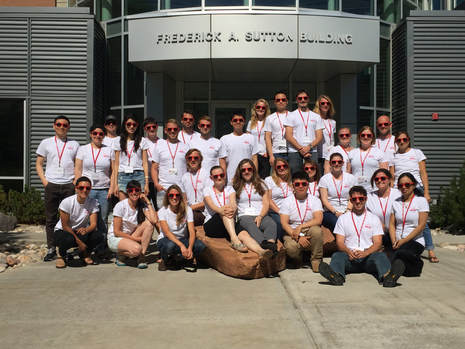Isotopes in Spatial Ecology and Biogeochemistry (SPATIAL Short Course)
Focus The SPATIAL (Spatio-temporal Isotope Analytics Lab) Short Course was launched in 2013 to provide big-data and large-scale research training to isotope scientists from a wide range of disciplines. It builds on the fundmentals offered in courses such as IsoCamp and introduces current research themes in large-scale ecology and environmental Earth science, theoretical and technical aspects of assembling and working with large, spatial datasets, and analytical and computational tools that support such work. The course emphasizes stable isotopes as a research tool but also stresses the integration of isotopes with other data types and methods. SPATIAL website: https://itce.utah.edu/spatial.html |
Structure
Morning lectures focus on the theoretical underpinnings of spatial structure in a range of isotopic systems and how these are applied to address scientific challenges in multi-scale ecological, biogeochemical and Earth science research. Afternoon laboratory sessions introduce students to tools and techniques for working with spatially explicit environmental datasets, including geodata identification, acquisition, management, and analysis, using real data from published and unpublished sources.
Morning lectures focus on the theoretical underpinnings of spatial structure in a range of isotopic systems and how these are applied to address scientific challenges in multi-scale ecological, biogeochemical and Earth science research. Afternoon laboratory sessions introduce students to tools and techniques for working with spatially explicit environmental datasets, including geodata identification, acquisition, management, and analysis, using real data from published and unpublished sources.
